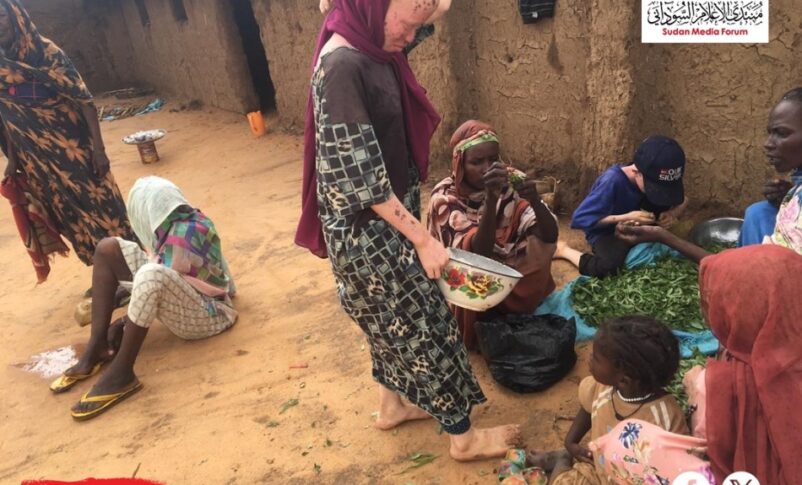Blockade in Sudan’s Zamzam camp causing severe malnutrition: MSF
September 13, 2024 (ZAMZAM CAMP) – A humanitarian crisis is unfolding in Zamzam camp, where a blockade has left hundreds of thousands of people facing starvation, medical charity Médecins Sans Frontières (MSF) warned on Wednesday.
A recent screening of children under five revealed alarming malnutrition rates: 10% suffer from severe acute malnutrition, a life-threatening condition, while 34% have global acute malnutrition, which can quickly become severe without treatment.
“The malnutrition rates are massive and likely some of the worst in the world currently,” said Claudine Mayer, MSF medical referent.
The Rapid Support Forces (RSF), which controls most supply routes in the Darfur region, blocked an MSF convoy carrying vital medicines and nutritional food from reaching the area last month. Additionally, several merchants were arrested by the paramilitary group for allegedly attempting to smuggle fuel into the besieged camp.
MSF’s efforts to negotiate the release of their convoy through a meeting with the RSF delegation in Geneva last month proved unsuccessful.
The blockade has cut off food supplies, leaving people reliant on dwindling pre-existing stocks. Food prices in nearby El Fasher are at least three times higher than elsewhere in Darfur, further exacerbating the crisis.
“Many people only expect to eat one meal a day,” said an MSF staff member on site.
The lack of fuel is also impacting the delivery of humanitarian aid, making it difficult to pump water and power clinics. MSF has been forced to scale back its operations, focusing solely on children with the most severe malnutrition.
“This means we had to suspend treatment for… 2,700 children and to put an end to consultations provided to adults and children over five years old,” Mayer said.
Zamzam camp is estimated to host between 300,000 and 500,000 people, many displaced multiple times by the ongoing conflict in Sudan.
MSF is urging the United Nations to explore all available options to deliver urgent supplies, warning that delays will cost lives.
“If the roads are not an option… the United Nations should look at every available option. Delaying these supplies means causing more deaths – possibly thousands of them,” said Trish Lacharité, MSF emergency coordinator in Sudan.

